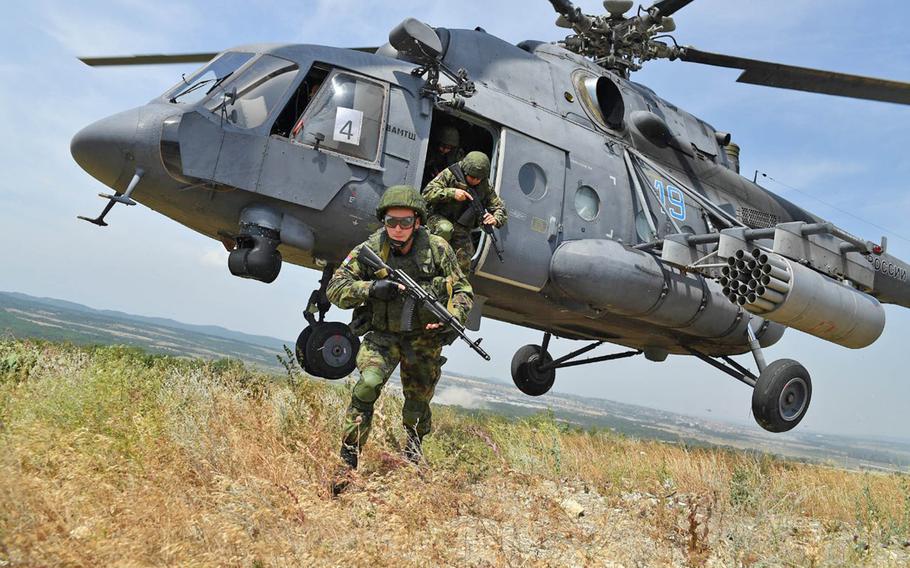
Belarusian troops disembark from an Mi-8 helicopter during a training exercise in an undated photo. A Russian Mi-8 assigned to a border guard unit made an intrusion into Estonian airspace over the weekend. (Belarus Ministry of Defense)
A rare intrusion into Estonian airspace by a Russian Mi-8 attack helicopter has prompted the latest salvo of charges that Moscow is ratcheting up tensions in the Baltic region one week ahead of a major NATO security summit.
Earlier this week, Russia lashed out at Lithuania for imposing a transit ban on certain goods to Russia’s military exclave of Kaliningrad. Both the ban and the airspace incursion happened over the weekend.
The helicopter, assigned to a Russian border guard unit, was flying with its transponders turned off and lingered in Estonian airspace Saturday evening for nearly two minutes, the Estonian Defense Ministry said in a statement Tuesday.
“This is the picture of the threat, how we see the Russian threat,” Kusti Salm, a ministry official, told local reporters Tuesday. “It has never been as serious as it is now.”
In response, Estonia summoned Russian Ambassador Vladimir Lipayev and lodged a formal complaint.
The incident was the second violation of Estonian airspace by Russia this year, the ministry said. Last year, five such incidents occurred, it said.
But Estonian officials are sounding the alarm over the latest incursion, which comes amid high tensions over Russia’s unprovoked full-scale invasion of Ukraine and the ongoing war there.
Estonian officials said the Russian aircraft didn’t file a flight plan or establish two-way radio communication with Estonian air traffic control, as air safety rules require.
The incident “undoubtedly causes additional tensions and is completely unacceptable,” Tallinn said Tuesday.
News of the airspace violation comes on the heels of Kremlin threats to retaliate against fellow NATO member Lithuania unless the transit ban is lifted. Russia relies on trains that travel through Lithuania to get supplies to Kaliningrad.
The items affected by the ban are subject to European Union sanctions, and officials shot down claims that Lithuania had acted unilaterally against Russia. They said the Baltic country coordinated its move with the EU.
At a NATO summit in Madrid next week, heads of state are expected to adopt a new strategy to address concerns about potential Russian aggression. The strategy is expected to involve an increase in troop levels along the alliance’s eastern flank.